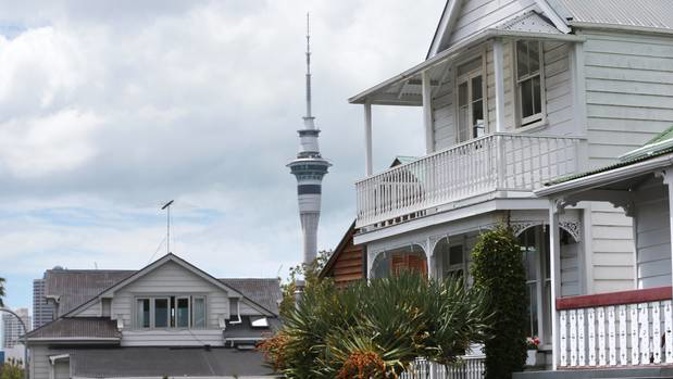
Introducing a 10 per cent capital gains tax would reduce New Zealand house prices by 10.9 per cent and lead to a higher rate of home ownership, according to a leading bank economist.
The Government's tax working group, headed by former Finance Minister Sir Michael Cullen, ran a two-month public consultation between March and April this year.
In September, the group will release an interim report before issuing their final recommendations next February.
The working group is interested in whether changes to the tax system would affect house prices and Westpac chief economist Dominick Stephens, writing in the bank's latest bulletin, said the answer was a "definite yes".
Property prices in New Zealand are "profoundly affected" by the tax system, Stephens said.
"It follows that changing the tax system would change property prices."
In New Zealand, property is more lightly taxed than other forms of investment, he said.
Treasury and the IRD estimate that property investors pay 29.4 per cent of their after-inflation returns in tax, whereas bank depositors and owners of dividend-paying shares pay 55.7 per cent.
This is mainly because income from investments is taxed, whereas capital gains are tax free, Stephens said.
Bank deposits yield only income, and are therefore taxed heavily. By contrast, property investments return little in the way of taxable net income and more in the way of capital gain, which is tax free. The "kicker" is the fact that expenses, including mortgage interest, are tax deductible, he said.
"This feature of the tax system is especially useful for property investors, who find it easier to borrow against their investments than other businesses," Stephens said.
/arc-anglerfish-syd-prod-nzme.s3.amazonaws.com/public/QT6CENZ6DZH6JD7HSKEX5M6SXA.jpg)
"Landlords' debt loadings can be so high that their expenses outweigh their rental income, meaning they can declare zero or negative taxable income. Meanwhile, they can collect tax-free capital gains," Stephens said.
"Naturally, this has made property investment incredibly popular. And that popularity has been one factor pushing house prices higher. The tax advantages of property investment have been factored into the price of property."
Another quirk of New Zealand's tax system is that property investors enjoy more favourable tax treatment than heavily indebted owner-occupiers/first-home buyers.
Property investors enjoy tax deductions for mortgage interest and property maintenance, whereas owner-occupiers do not.
"This boosts the amount property investors are willing to pay for property," he said.
Consequently, fewer aspiring owner-occupiers are willing or able to outbid aspiring investors to secure a dwelling. Not surprisingly, after the tax rules granting landlords this advantage were introduced in the early 1990s, New Zealand's home ownership rate fell.
"If the tax system has affected the price of property and the rate of home ownership in New Zealand, it stands to reason that further changes to the tax system could once again alter both," Stephens said.
The tax working group is considering the possibility of a capital gains tax that would exempt the family home, but would apply to other properties including rentals.
This extra expense would decrease the amount an investor could pay for a property while still realising a profit. With fewer landlords, rents would rise. And with investors willing to pay less for a property, more auctions/tenders would be won by aspiring first-home buyers and the rate of home ownership would rise.
Data out last week showed New Zealand house prices have set a new national price record of $562,000, up 5 per cent or $27,000 annually, driven by strong growth in areas like Tasman. But Auckland prices continue to fall, down 1.3 per cent from $862,800 to $852,000 in the year to May, with volumes also down.
Take your Radio, Podcasts and Music with you









